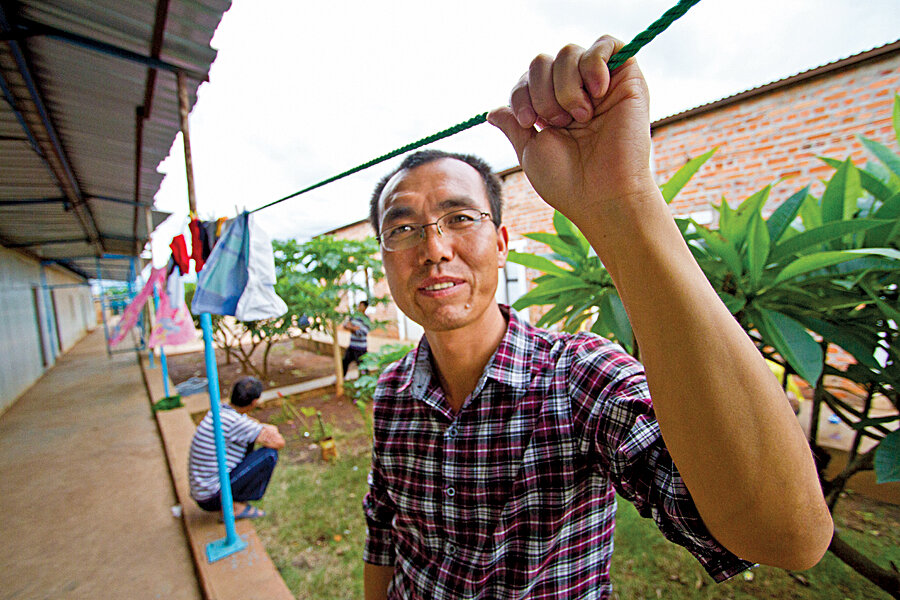In Congo, Chinese are settling in with businesses and bargains that locals love. At one copper smelting plant, Chinese and locals work together but live apart.
LUBUMBASHI, CONGO — Some 6,000 miles away from his home in China, Robin Wei awakes on a cot beneath a white mosquito net. He gets dressed, opens the door of his bunker, and walks out into the rainy season toward the factory where he works.
Four years ago, Mr. Wei bade goodbye to his wife and daughter in Shanghai and boarded a flight to the heart of Congo’s mineral belt. He lives and works at a Chinese-owned smelting plant that extracts copper from the rich ore, which is then sold for wire and pipes that go into building skyscrapers and cargo ships.
Congo also holds nearly half the world’s known reserves of cobalt. It has vast reserves of high-grade copper, tantalum, and tin. Just 10 years ago, a ton of copper could fetch $1,700 on the world market. Today it goes for about $8,000.
Wei is one of hundreds of thousands of Chinese men and women – as many as 1 million by some estimates – who, at least for now, call Africa home. (Wei goes home to visit his wife and daughter once a year.) China has been investing heavily in Africa for more than a decade, and both China and its migrants are in what could be called a settling-in period as the story of a fast-growing Africa and a rising China unfolds.
Read the full story as it appeared at the Christian Science Monitor. This story was adapted from the new e-book China’s Congo Plan.

